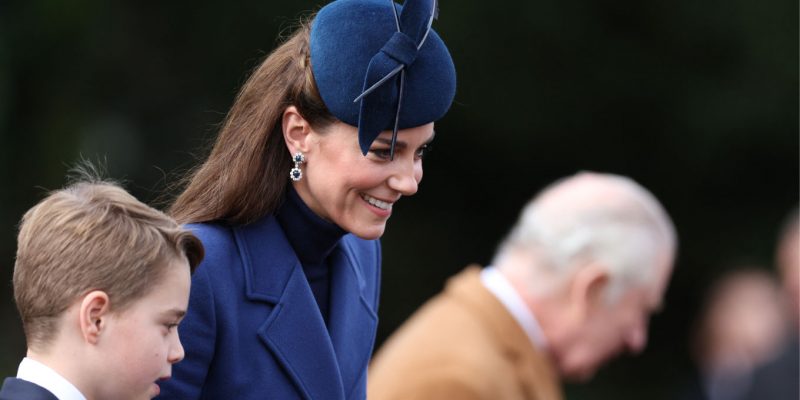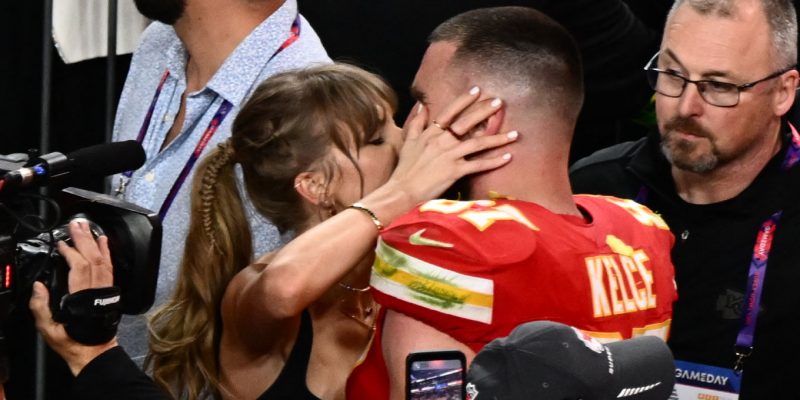Culture
Author Emily Henry Is Romcom Royalty
Henry wants to take you to your happy place.
by : Patricia Karounos- Apr 24th, 2023
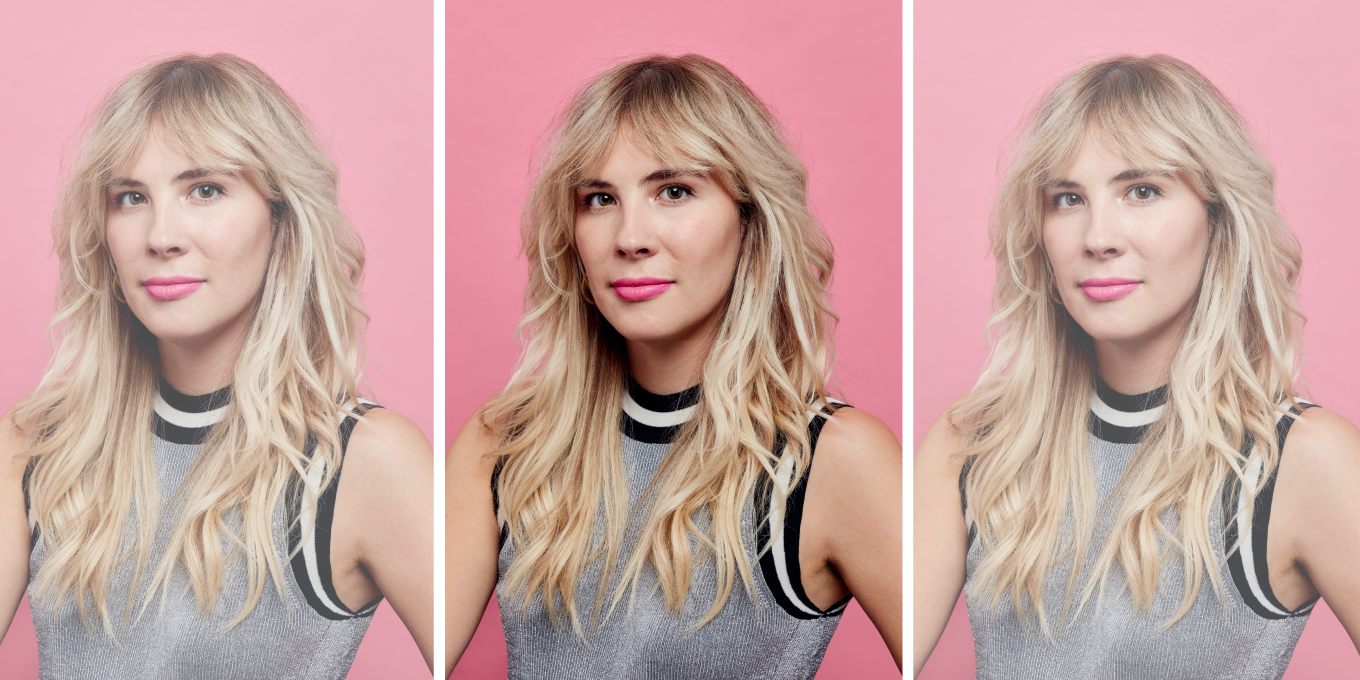
PHOTOGRAPHY, DEVYN GLISTA/ST. BLANC STUDIOS
Walk into any bookstore and you’ll probably be greeted by the books of Emily Henry. The New York Times Best Seller author is known for her enchanting romance novels, like last year’s Book Lovers, and unmistakable covers: Vibrant hues serve as the backdrop for cute, inviting illustrations and big white block letters proclaiming the title. The books, now hugely popular on TikTok, scream “beach read” (and not just because that’s also the title of Henry’s 2020 debut), letting readers know they’re in for a comforting, heart-fluttering story that will let them escape reality for quiet, blissful moments.
“I’m trying to create this very long vacation for myself,” says the novelist, who’s based in Cincinnati, Ohio, of her writing process. And for the most part, a vacation is exactly what you’re getting with a Henry novel. But that’s not all. Beneath the movie-worthy meet-cutes and tension-laden flirting is the type of emotion that catches you off guard, especially when you’re busy judging books by their covers. There are heavier moments and angst as lifelike characters navigate things like heartbreak, grief, loneliness and mental health. You know a happy ending awaits you on the final page, but the journey makes you work for it.
Henry’s latest novel (and fourth romcom), Happy Place (out on April 25), continues in that fine tradition. Told across two timelines, the story follows Harriet and Wyn, the picture-perfect couple in a tight-knit college friend circle who, after nearly a decade together, have broken up. The catch? No one knows, and the exes are forced to pretend they’re still happily in love during their annual group vacation in Maine.
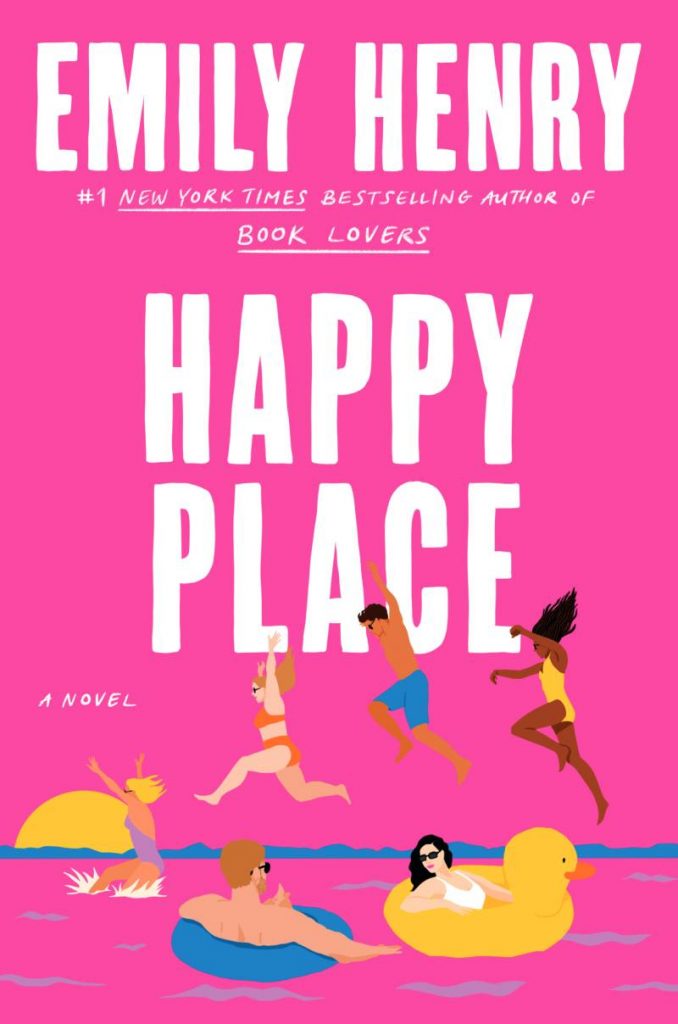
The idea was sparked not long after Henry completed Book Lovers. She was starting to brainstorm as the weather got colder—her favourite time to rewatch old Hollywood movies. It just so happened that she was watching a lot of screwball comedies about remarriage from the ’30s and ’40s—like The Philadelphia Story with Katharine Hepburn and Cary Grant— which prompted her to think that it would be a “fun challenge” to write a second-chance romance, a story about a couple who had already fallen in love—and out of it—by the time readers meet them. “I wanted to see if I could get people to care about people falling in love for a second time, when they already know each other’s quirks,” she says. “It’s funny because the book I wrote did not end up being light and frothy. I wasn’t coming up with a whole lot of screwball scenarios for Harriet and Wyn. Instead, I was putting them in the real world and was like, ‘Oh, this is devastating.’”
Happy Place has the same charm and wit fans have come to expect from a classic Henry tale, but it is also about meaningful friendship, getting older and choosing what you want your life to be, making it more profound than some of her past work. “To me, Happy Place feels very much of a piece with the rest of my books—it just feels like the next step,” she says. “When I started publishing, my books were about being in your late 20s or early 30s and feeling like you’ve gotten to that point where, for the first time, your life isn’t prescriptive anymore and you’re not really sure what comes next. So far, my 30s have been really fun, and I imagine that my characters will continue to age alongside me and that there will be more development toward the next phase of life.”
Facing what comes next has never been something that Henry has shied away from. An avid reader throughout childhood, she started writing when she ran out of books to read in the series she loved (like Katherine Applegate’s Animorphs), creating what was basically for-her-eyes-only fan fiction. By the time Henry understood that the people who wrote her favourite books made an actual living from them, she knew that that was what she wanted to do—although there was a time when her passion for dance pulled her away for a bit. A creative-writing scholarship in college drew her back in, and soon she was writing in full force.
“I’m most excited about taking characters through an emotional arc—going back to their childhood, finding out what their traumas were and what their coping mechanisms are and forcing them to confront [their past].”
Romcoms aren’t Henry’s first love. She started out writing sweeping YA novels (such as 2016’s The Love That Split the World) because she liked reading the intense, rapid-paced genre. And as a young twentysomething, she felt adolescence was the only thing she had perspective on. But as she got older, Henry found herself wanting to write about characters who were at a similar stage in life. Then a particularly dark period had her turning to the romance aisles for relief—the books made her feel safe and happy, and the more she read, the more interested she became in the romcom format. And when Henry gets wrapped up in something, she wants to write about it, so that’s what she did.
“I stumbled into romance and realized I was actually better at it than the other things I had been trying to be good at for a while,” she says. “I’m most excited about taking characters through an emotional arc—going back to their childhood, finding out what their traumas were and what their coping mechanisms are and forcing them to confront [their past]. I think that’s why people glom onto my books. They feel connected to these characters who have the same kinds of thought patterns and make the same mistakes they do, and then they see them break through. As a reader, it’s empowering to see yourself in a character; it helps you know yourself better and be healthier.”
Her first two romance novels, Beach Read and People We Meet on Vacation (which is currently in development to be adapted into a film), were both successful. Then TikTok’s #BookTok community found them—and eventually Book Lovers—and her books became phenomena. Henry has now spent months on bestseller lists, and as of earlier this year, her hashtag has well over 150 million views on TikTok, making her one of the big names of the BookTok genre. Although she’s not on the app herself, this time around, with Happy Place, she has a much greater awareness of what’s happening in the reader community.
Does Henry feel pressure as readers eagerly await the next book? Yes, but not in the way you might think. “The reason that BookTok functions as well as it does is because it’s entirely reader-driven, so when a book catches on there, it’s especially gratifying—a person just really loved a book and wanted to make a video to tell everyone about it,” she says. “I definitely feel immense pressure now with every book, but I would still feel that pressure outside of TikTok. Now there are people who I do not want to let down—not [because I’m worried] that this book won’t sell but because they have given me a career. They have made it possible for me to write full-time, which is really rare and not something I take lightly.”
Newsletter
Join our mailing list for the latest and biggest in fashion trends, beauty, culture and celebrity.
Read Next

Beauty
Dyson Just Launched Its Most Intelligent Hair Dryer Yet
Get ready to upgrade your blowout game.
by : Lauren Knowles- Apr 25th, 2024
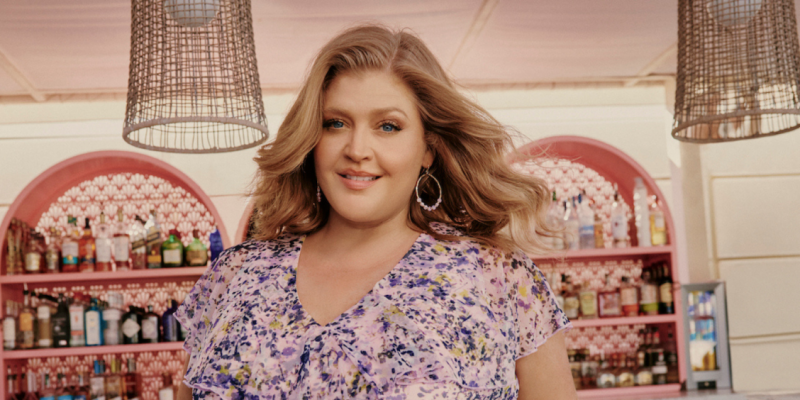
Fashion
Meredith Shaw Created a Plus-Size Summer Dress Collection That "Feels Like Candy"
The morning show host joined forces with PENN. to create a curated collection for sizes 14-32.
by : Allie Turner- Apr 25th, 2024

Beauty
ELLE Tried It: Five Serums to Up Your Skincare Game
Members of the ELLE team tested Avène Dermatological Laboratories’ five new concentrated serums. Here's what they thought.
by : ELLE Canada- Apr 25th, 2024

